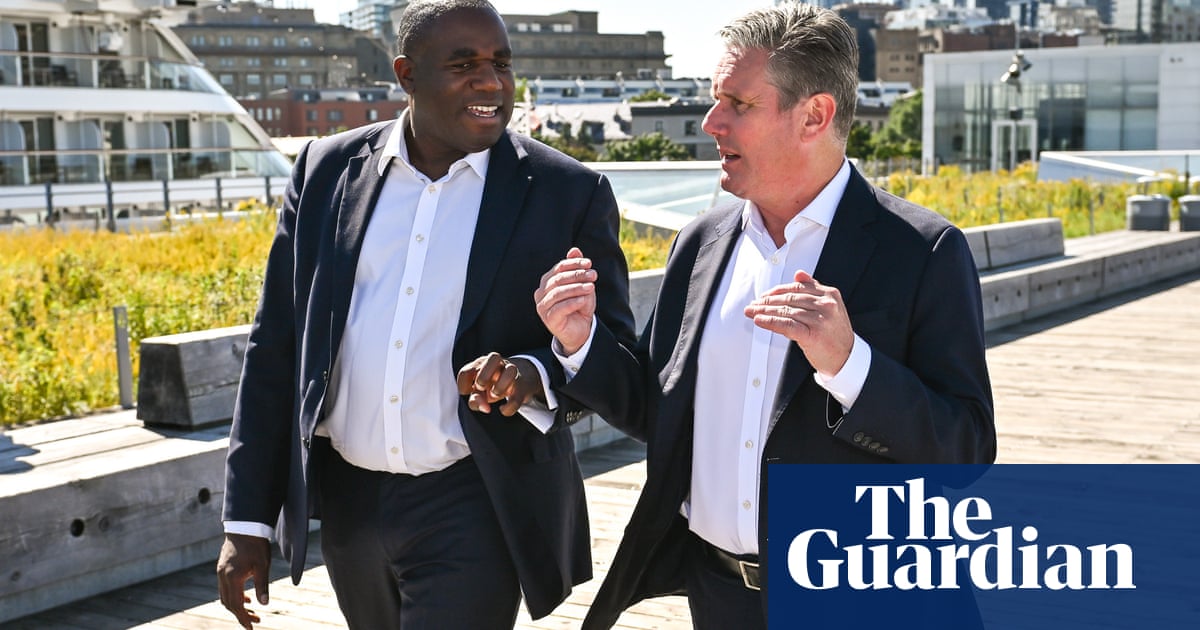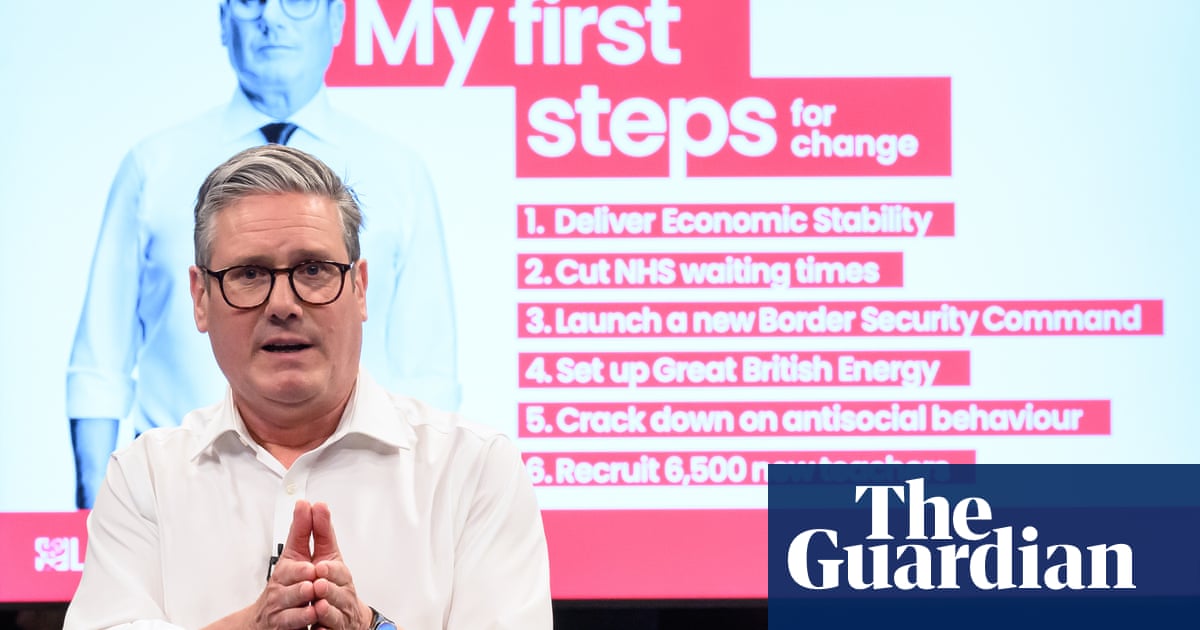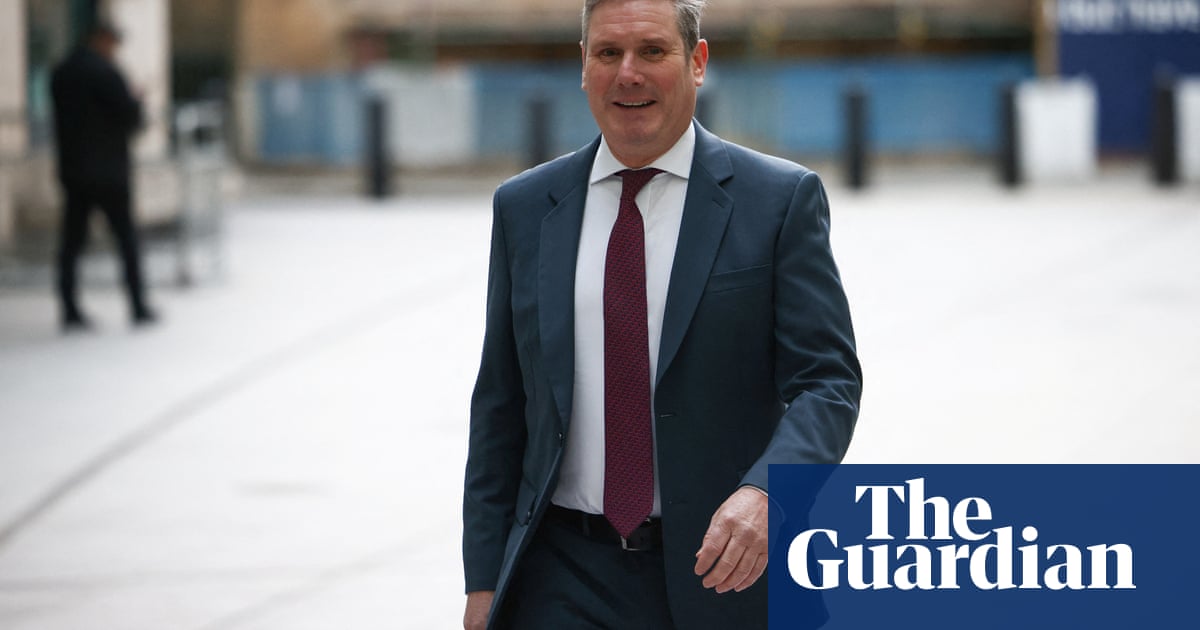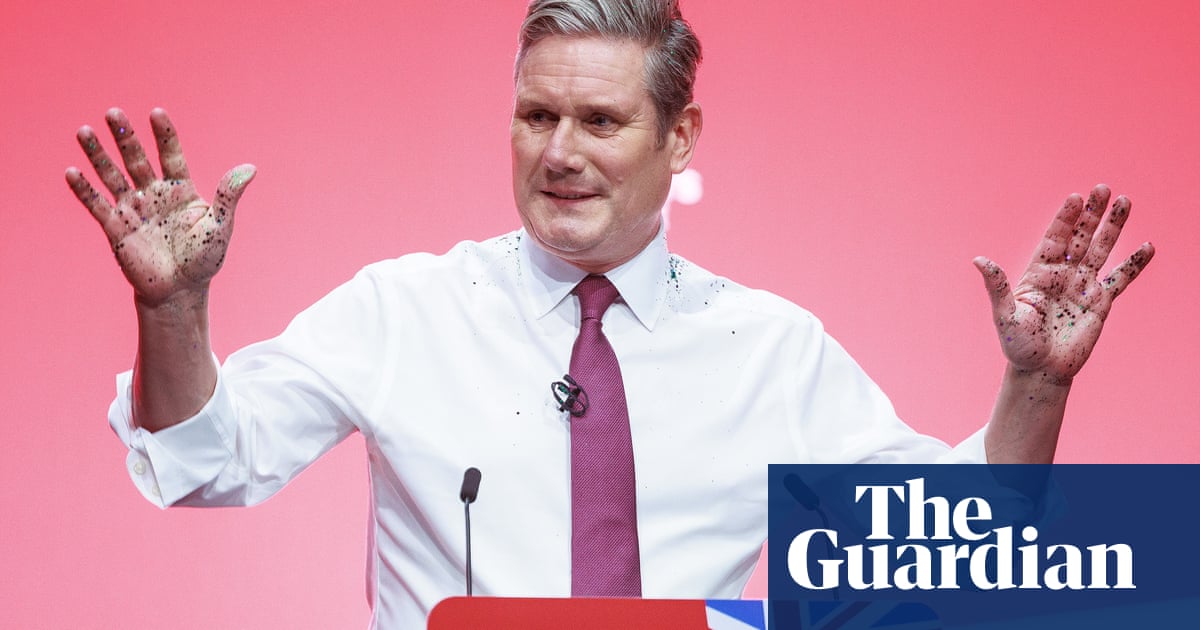
There will be no “quick fix” to the deep problems Labour will inherit if it wins the next election, Keir Starmer has said while unveiling his party’s six election pledges amid a fanfare of endorsements from senior public figures.
The Labour leader said “most reasonable, tolerant people” in the country wanted what his party wanted for Britain, before he received an extraordinary endorsement from the Boots chief executive, Sebastian James, an Old Etonian who was a member of the private all-male Bullingdon Club alongside David Cameron.
James, who is pictured in the infamous club photograph (see below) alongside Cameron and Boris Johnson, appeared in a video message endorsing Rachel Reeves’ plans for economic stability.
The Labour leader told the launch event in Essex, attended by the entire shadow cabinet: “There is no quick fix to the mess that the Tories have made of this country.”
He said the public could expect to see his six pledges materialise within two terms of a Labour government, noting “we won’t be forgiven if we’re not prepared on day one if we are privileged enough to come in to serve”.
Starmer rejected suggestions the pledges were unambitious, saying that restoring stability must be the party’s first step before it embarks on any more ambitious plans to change the nation. “This is a very different moment to 1997, after the damage that’s been done in the last 14 years,” he said.
Starmer said he had recently spoken to a couple in Wolverhampton who had decided they could not afford to have a second child.
“I’m not prepared to let an incoming Labour government ever do that kind of damage to working people,” he told the audience. “That’s why I can hardly believe I’m saying this: stability is change, and that’s why it has to be our first step.”
The party has distributed a physical and digital pledge card with key promises, such as stabilising the economy, cutting NHS waiting times, setting up Great British Energy, cracking down on antisocial behaviour and recruiting 6,500 new teachers, which are the latest steps in his “national missions”.
Starmer addressed an audience packed with longstanding Labour figures and prospective parliamentary candidates in a grand room at the Backstage Centre film studios in Purfleet-on-Thames.
Before his speech, shadow cabinet ministers Reeves, Wes Streeting, Ed Miliband, Yvette Cooper and Bridget Phillipson took turns to expand on the personal challenges people are facing across the country in relation to their briefs, which they said was driving their ambition for change.
Rayner, the deputy leader, kicked off the event, saying the party had “no illusions about the scale of the climb ahead”. “We aren’t promising the world,” she said, “but we are promising what we are confident that we can deliver on.”
Reeves, the shadow chancellor, said Labour was “ready to serve, ready to lead and ready to rebuild Britain”, but suggested the work of returning to economic stability could take two terms of a Labour government, and would “require tough choices. It will take hard work. A decade of national renewal.”
James’s endorsement was designed to demonstrate the breadth of support the party was receiving. Nodding to Labour’s five-point plan to save Britain’s high streets he said a “thriving high street helps to build communities and will be a really important gamechanger in the next few years”.
Streeting, the shadow health secretary, said Labour would provide the NHS with 40,000 more appointments each week, at evenings and weekends. “Healthcare for the many, paid for by the few, investing more in the NHS and reforming the way the service works,” he said.
Streeting introduced Nathaniel Dye, who has terminal cancer and waited more than 100 days for treatment when the government’s target is about 62 days. Dye said he hoped to see a Labour government so other people “can avoid ending up like me”.
Cooper, the shadow home secretary, said she would make Labour “a government of law and order, putting the safety of communities right at its very heart”, citing plans for 13,000 more neighbourhood police officers and police community support officers, 100 new youth hubs and stronger laws to tackle violence against women and girls.
Miliband, the shadow secretary for energy security and net zero, relayed a core argument the party is likely to lean on in the election: people will face higher bills and energy insecurity with the Tories. Internal Labour polling has found more than 60% of Tory voters back the party’s ambition of setting up Great British Energy.
Responding to a question from the Guardian, Starmer stressed housing and workers’ rights were “integral” to his six steps, and the fact that there were only a limited number of steps did not mean other issues would be “put to one side”.
Labour paraded a number of endorsements including one from Neil Basu, a former assistant commissioner at the Metropolitan police.
Starmer was introduced by Haruna Hamza, a Thurrock resident who said he was switching his vote from the Conservatives to Labour because the Tories had “let the country down”.
The event has kicked off the party’s biggest advertising campaign since 2019. Billboards and vans will be seen in key battleground seats in London, Rochester, Stoke-on-Trent and Darlington and there will be a number of regional newspaper adverts. The shadow cabinet will also take Labour’s message to the country on a number of visits in areas such as Wolverhampton, Leigh, Aldershot, Doncaster and Bassetlaw.












